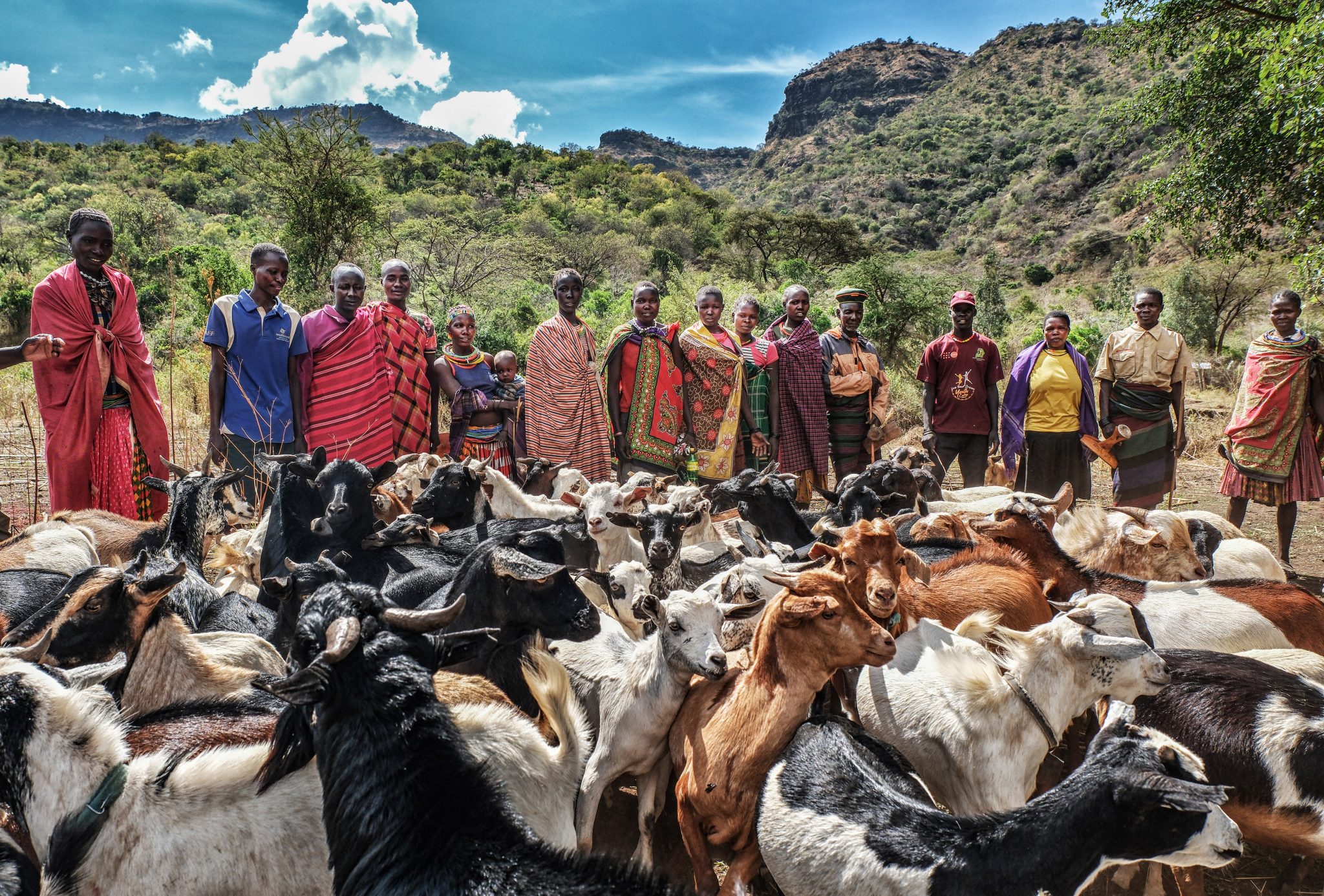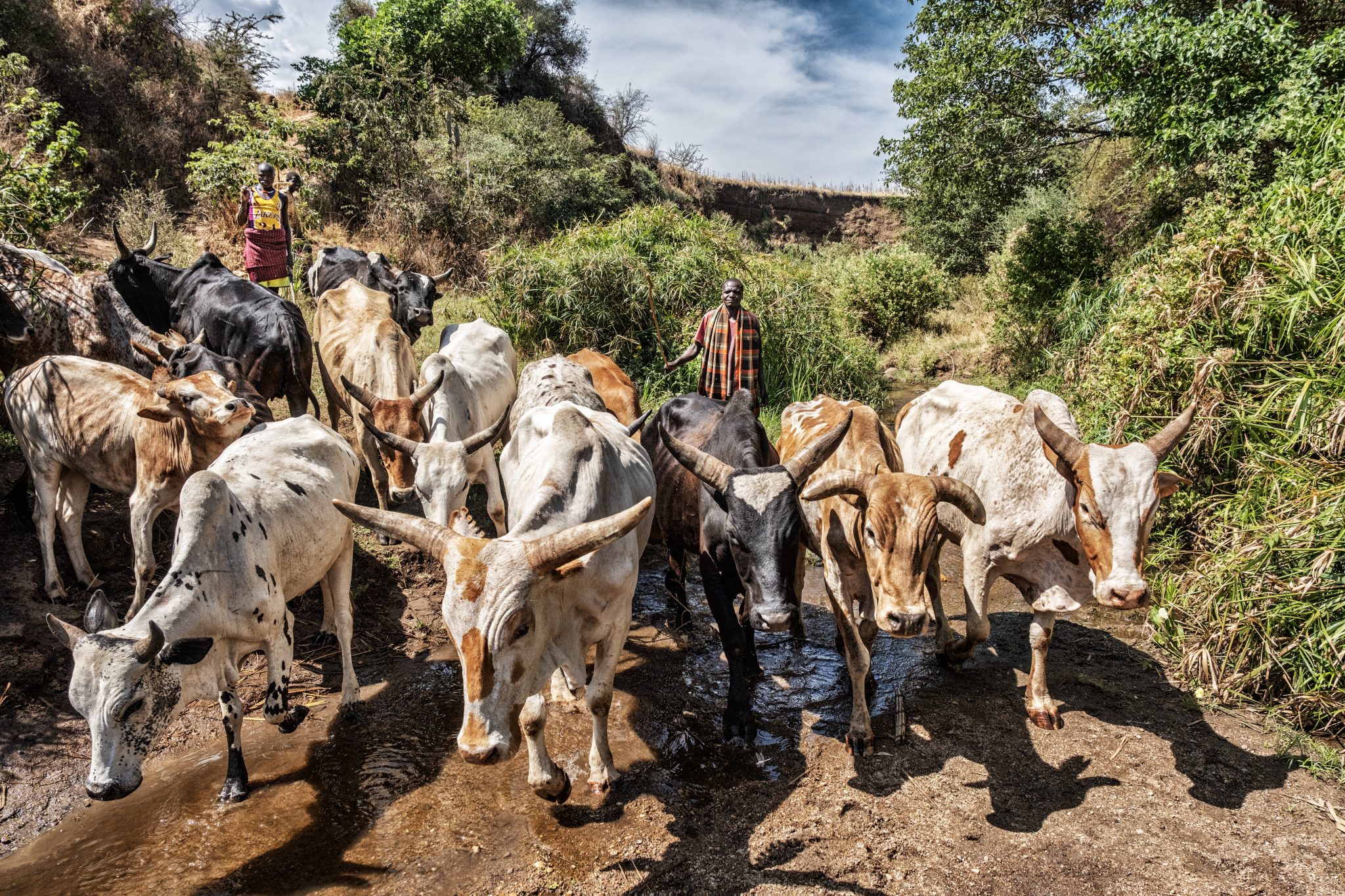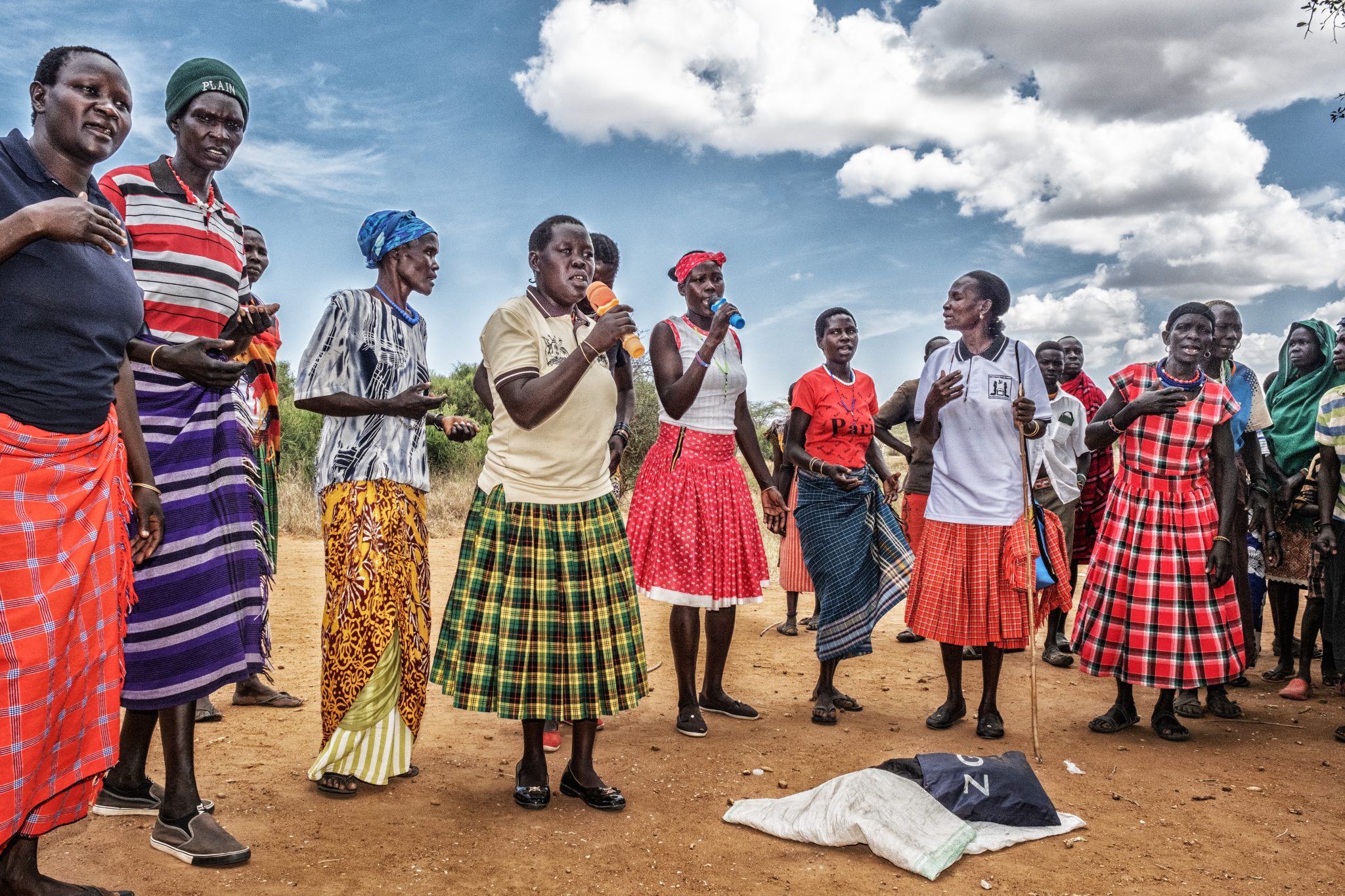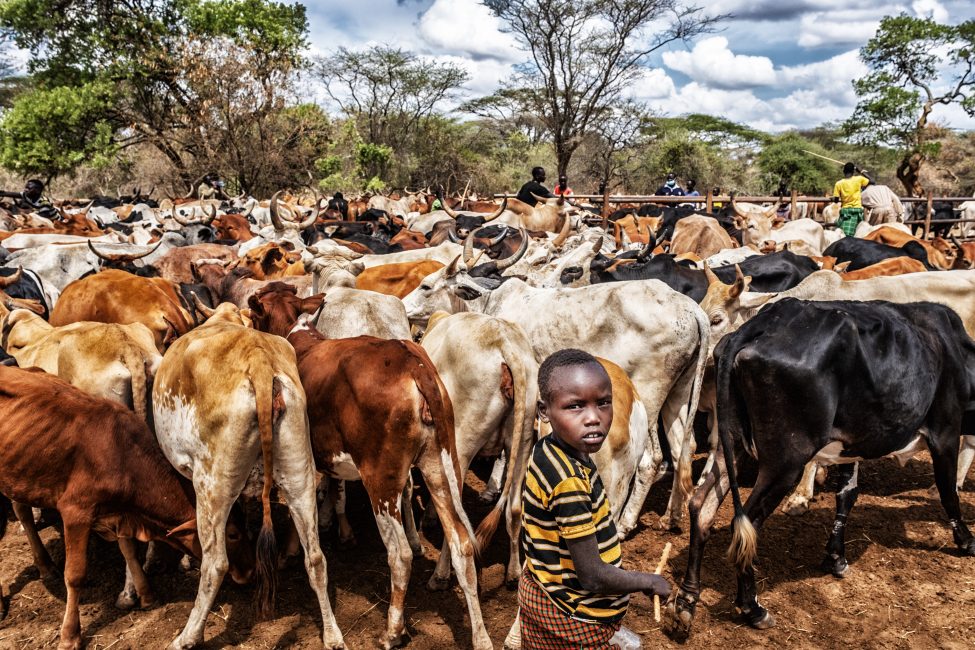In north-eastern Uganda is the region of Karamoja, which covers an area as large as Belgium and has a population of 1.2 million people who face many challenges. Complex problems converge here, ranging from climate change and population growth to conflicts among pastoralists, i.e. nomadic livestock keepers. Vétérinaires Sans Frontières Belgium has been working in Karamoja since 2006, committing to better livestock health and production and to offering vulnerable families more economic opportunities. Our efforts also extend to more effective land and water management and the reduction of conflicts. Since 2022, we have also run humanitarian campaigns.
Fighting poverty and climate change

In the Karamoja region, livestock keepers and agricultural farmers face many challenges, including climate change, poverty and conflict. © Tim Dirven
Irregular rainfall and the increase in extreme weather conditions have led to a higher risk of drought, famine, floods and epidemics. Karamoja is marked by poverty, with high percentages of malnutrition, child mortality, unemployment and illiteracy. The political situation remains fragile, with limited access to health care and ongoing conflicts over scarce resources.
The inhabitants of the region are livestock keepers and agricultural farmers, all of whom have to cope with climate-related shocks such as drought, unpredictable rainfall, floods and outbreaks of livestock disease. Vulnerable families have difficulty safeguarding their property rights to the land as conflicts between communities drag on, driven by competition for water and land. Insecurity and poverty even lead to thefts of each other’s livestock.
Innovative solutions for livestock management
The introduction of the Digital For Development project in Karamoja offers a glimmer of hope in this challenging and unstable setting. The digitisation of livestock branding supports animal carers and security services as well as the livestock keepers themselves. The goal of the project is to strengthen the livestock-keeping value chain, i.e. everything to do with livestock from production to sale, and to continue to encourage peacebuilding between communities. Around 5000 pastoralists, who own a total of about 20,000 animals, will benefit from this scheme.

Digital branding of livestock contributes to a more sustainable value chain and encourages peace between communities. © Tim Dirven
At present, local authorities use branding irons to brand the livestock. The Karimojong, as the pastoralists of Karamoja are called, use the brand to identify livestock. The traditional method is not ideal, because there is no link to the owner and the marks are too big. The digital system will improve matters by linking the animals to their owners and help them manage their livestock. It means, for example, that animals can be returned to their owner. Furthermore, there is an alarm function to report plundering, natural disasters and disease outbreaks. It is also possible for everyone to monitor the health and productivity of the livestock.
The digital application makes the livestock-breeding practices clearer and more effective, contributes to a more sustainable value chain and helps fight disasters and disease.
For a resilient and peaceful future
We are aiming for a more peaceful setting and a more positive environment for livestock keeping. By discouraging plundering and livestock thefts, and by improving animal health through timely warnings of outbreaks of disease, we hope that pastoralists will stay motivated to stick with their profession and invest in it.

A group from the women’s peace forum travels around the region. Through theatre plays and personal testimonies, they plead for the voluntary surrender of weapons. © Tim Dirven
The Digital for Development Fund is supporting the development phase of our project, which consists of setting up a unique locating and identifying system for animals and owners, creating and managing an online database, and software development. We will begin in the district of Moroto, paying great attention to awareness-raising and training among stakeholders.
We will uphold the Principles of Digital Development. Our collaboration is aimed at everyone involved, and we will be integrating it with existing campaigns to promote peace. Digitisation will be aligned with current policy in Uganda and be practicable in Karamoja. Vulnerable households will benefit from this digital system, which is why we advocate its use as public property with a role for the government.
Besides technological innovation, this initiative also promises to bring practical benefits to the local communities in Karamoja. Livestock keepers will lose fewer animals, which will improve livestock sales. The improved planning and distribution of land between the nomadic livestock keepers will prevent the land from becoming exhausted so easily. By involving everyone and using all the data, we hope to contribute to a more resilient and peaceful future for the entire region.
The digitisation of livestock branding in Karamoja, Uganda, has been made possible thanks to the support of the NGO Federation, ACODEV, Fiabel and the Digital For Development Fund. We are looking forward to sharing our experiences and working together towards sustainable development.

